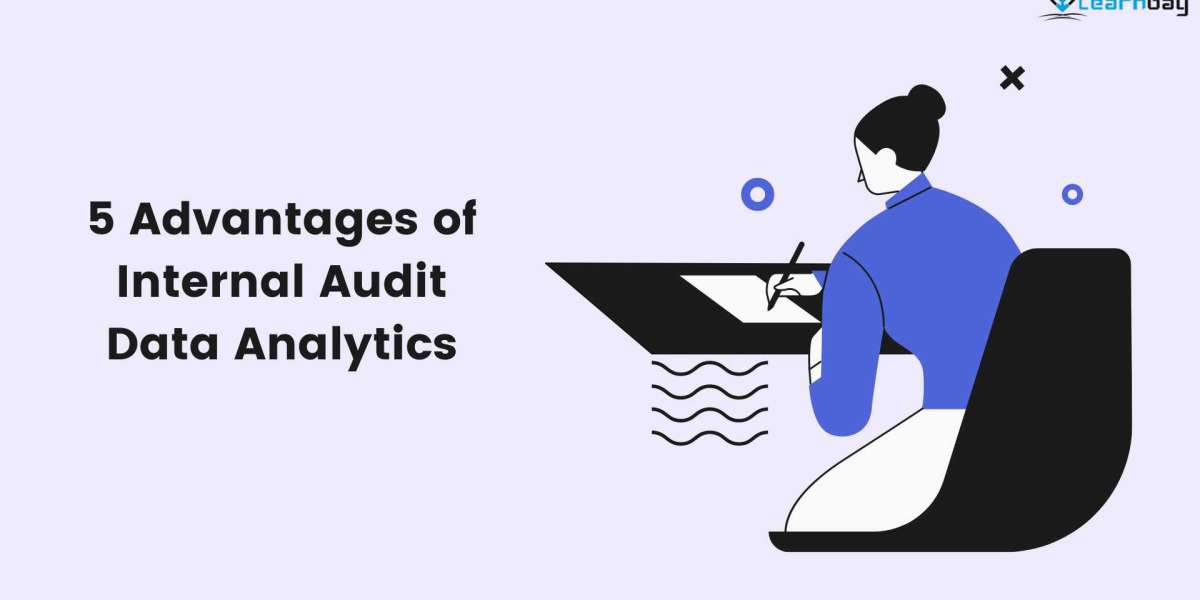In today's digital era, data science and Analytics are being used by a number of businesses to assist them in making decisions, thereby boosting revenues. Data analysis is done to look for transactions that don't follow the expected patterns. These transactions might be more likely to result in a substantial misrepresentation or a sign of fraud. Additionally, some tools. auditors are concerned that computers will replace them due to the strength of data analytics
However, data analytics tools don't eliminate the need for auditors; rather, they provide them more time to review analysis findings and choose when and how to take additional measures. As a result, when auditors have access to data analytics technologies, they have more time to devote to giving their clients insight. Based on the findings of audit data analytics, auditors can also provide value-added services to their clients.
Let's now examine some of the main advantages auditors might expect from implementing data science and analytics.
Verifying all data sets
In the past, data analysis consisted of selecting a sample of a data set from conventional spreadsheets and drawing conclusions from those samples and the auditor's familiarity with the company.
As the complete data set is not yet evaluated, there is a chance for inaccuracy. The use of data analytics software enables more complete audits by testing the entire data set rather than simply samples.
There is a chance for inaccuracy when decisions are made based on the auditor's familiarity with the entity. When an organization exclusively conducts business from Monday through Friday, an external auditor can overlook the fact that multiple transactions were entered over the weekend. Data analytics could identify these transactions as "Unusual Days" in this situation. Refer to the data science course for a detailed explanation of how data analytics helps businesses.
Using information from any source
Accounting companies will face increased pressure to add value for their audit clients in the 2020s. However, when data is dispersed over numerous files, systems, and solutions, it can be challenging to develop solid insights.
Data analytics tool makes combining data from many sources simple, enabling auditors to execute analyses fast and effectively and offer their clients higher-quality insights.
Data extraction from any source should be made simple by data analytics software.
Including data analytics in the auditing process
The workflow of an audit normally does not include the usage of analytics tools. Auditors frequently need to analyze data alone or rely on extra data experts. As a result, audits take longer, cost more money, and the test results are hidden.
By integrating automated testing into established audit procedures and producing helpful reports for future audit-proof, data analytics aids in the simplification of engagements.
Applications of Artificial intelligence and machine learning
Data analytics software employs artificial intelligence to perform the duties of human auditors. Based on the available data set, its machine learning (ML) capabilities change its algorithms to produce the most accurate results.
All the transaction and trial balance entries in an engagement's data set can be swiftly and accurately examined by analytics software employing AI and ML, and valuable conclusions can be provided for further examination. This may entail customizing the analysis to produce more nuanced results and to look at potential problem areas that the preliminary studies may have revealed.
Personalized analytics
Deep study frequently takes more time and money than most clients are ready to invest. With automated data analytics technologies, auditors can examine data in greater detail without considerably increasing personnel workload.
Due to the abundance of data accessible, fraud detection can frequently be challenging with standard auditing approaches. Numerous tests can be customized using data analytics based on the traits of each entity.
Overall, we can say that data analytics does help auditors in an efficient and smooth process. If you also want to become a data analyst in finance or any other domain, there are many best data science courses in India available online. Become certified and be prepared to help businesses in their growth.








